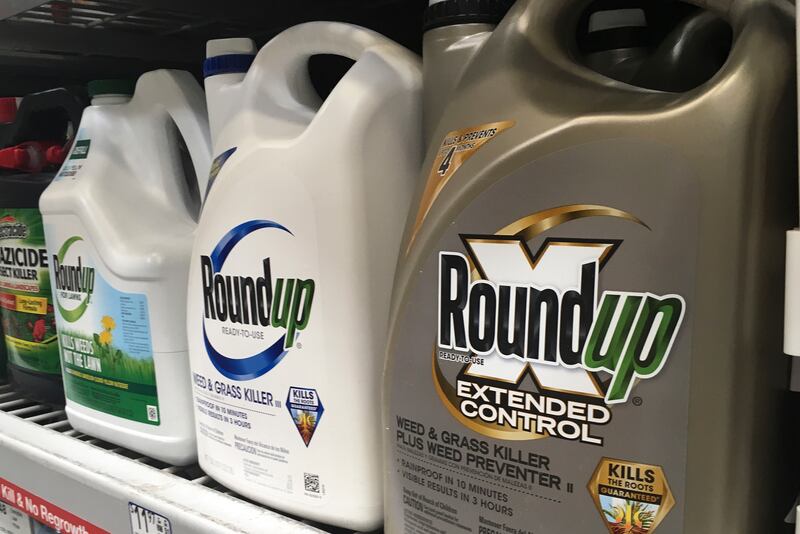More than 4 out of 5 Americans have a weed killer in their urine, according to a new government study.
The new study found that of 2,310 urine samples that were representative of the U.S. population, 1,885 contained glyphosate. Nearly a third of the samples in the study by the U.S. National Nutrition Examination Survey came from school-age children. The study said 87% of the children tested had glyphosate in their urine.
The finding, which was just published by the Centers for Disease Control and Prevention, used samples taken and stored from the 2013-14 wave of the National Health and Nutrition Examination Survey. Those involved had given permission for the samples to be used for future study.
Glyphosate is the active ingredient in Roundup, a popular herbicide. The study said glyphosate is the most widely herbicide used in the U.S. in the agriculture sector and No. 2 in the home and garden market. The World Health Organization’s International Agency for Research on Cancer deems the herbicide “probably carcinogenic.” A panel of 17 scientists made the determination after reviewing nearly 1,000 peer-reviewed studies on the likelihood the chemical is carcinogenic.
“Glyphosate is the most widely used herbicide in the country, yet until now we had very little data on exposure,” said Alex Temkin, Environmental Working Group toxicologist, in a written statement. “Children in the U.S. are regularly exposed to this cancer-causing weed killer through the food they eat virtually every day.”
Temkin urged the Environmental Protection Agency to take “concrete regulatory action” to protect children's health and lower the amount of the herbicide that makes it into the food supply.
The Environmental Working Group reported that its previous tests and those of other public interest groups “have found glyphosate in popular breakfast cereals and other foods American adults and children love to eat.”
According to CBS News, “Traces of the herbicide have previously been found in kids’ cereals, baby formula, organic beer and wine, hummus and chickpeas.”
Glyphosate’s history
“Glyphosate was invented and marketed by Monsanto until 2018, when Bayer bought the company for $63 billion,” the statement from the Environmental Working Group said. “It inherited liability for about 125,000 claims by people who say the weed-killing products caused their cancer. The company announced in 2021 that glyphosate will no longer be sold for residential use in the U.S. by 2023.”
The U.S. News & World Report article noted that two years ago the EPA said the chemical was not a serious health risk and “not likely” to cause cancer in humans, but a federal appeals court ordered the EPA to reexamine those findings. Last month, the Supreme Court rejected Bayer’s bid to end ongoing lawsuits over the herbicide and cancer risk, letting a $25 million judgment awarded a California man stand.
CBS News reported that Bayer has won four cases in state courts where people claimed Roundup gave them cancer.
“The company continues to assert that the herbicide is safe, but plans to replace it in Roundup intended for residential use beginning next year. The chemical will still be included in products meant for professional and farm use,” according to the U.S. News & World Report article.
Bayer told The Hill “that small amounts of glyphosate would normally be detected in urine samples because the body gets rid of nonessential substances.”
Choosing food wisely
According to The National Children’s Cancer Society, studies suggest as many as 35% of adult cancers are diet-related. And it cites The National Cancer Institute, the Diet and Cancer Project and the American Cancer Society to offer nutritional guidelines for cancer survivors to stay healthy. But the advice is good for everyone, the organizations say.
They recommend limiting the intake of red meat and processed foods that are “high in sugar, low in fiber or high in fat.”
Other advice includes:
- Limiting salt and fat intake.
- Ensuring less than a third of calories from fat have an animal source.
- Using only low-fat varieties of dairy products.
- Eating plenty of protein to make up for reducing the amount of meat you consume.
Cancer Research UK reports that “there aren’t many foods that cause cancer, but eating processed and red meat can increase the risk of bowel cancer.” And it notes that while sugar doesn’t cause cancer, it can lead to being overweight or obese, which increases the risk of 13 types of cancer.



